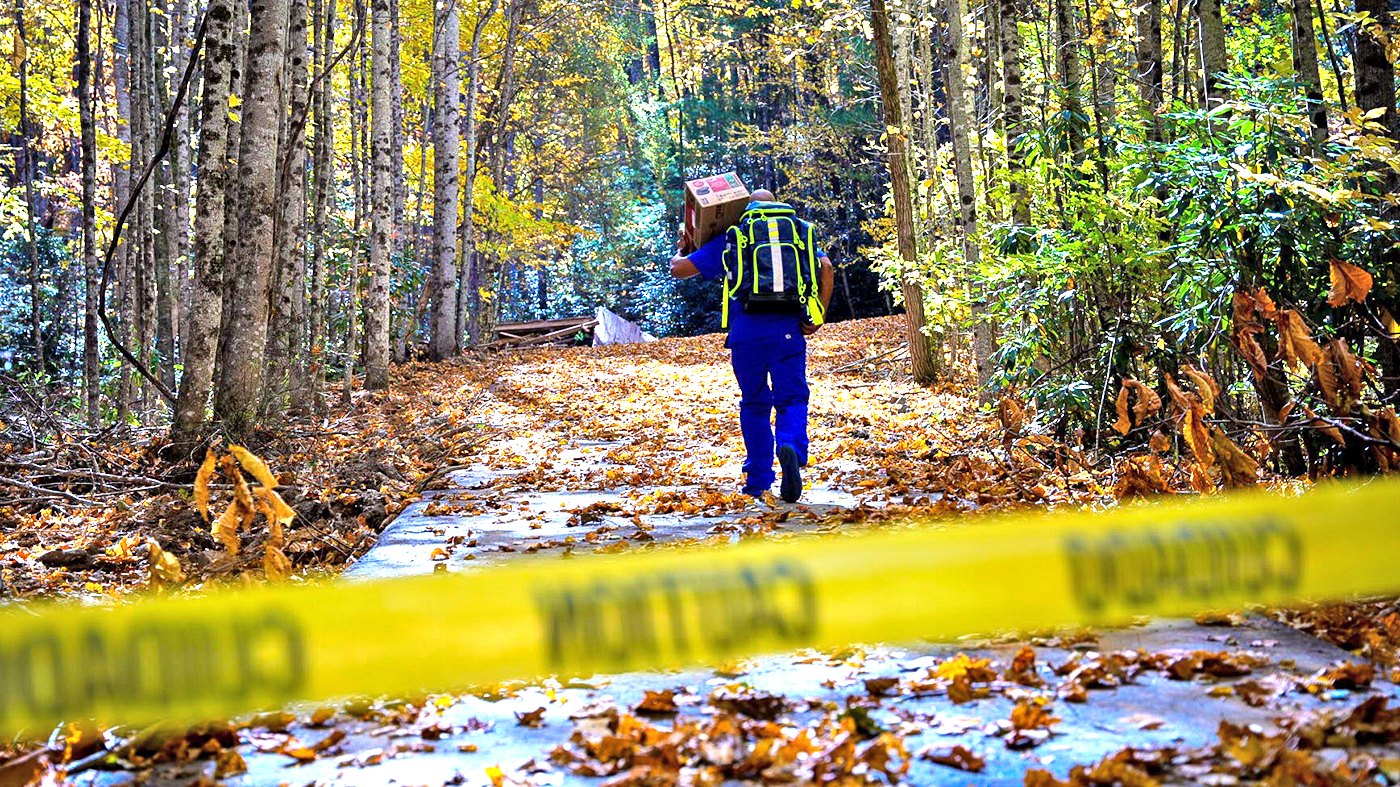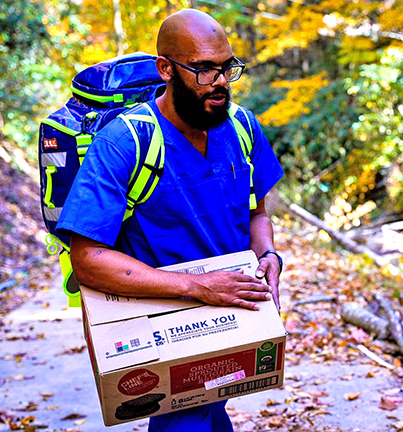Corey Anderson is used to making house calls as part of VA’s Supporting Community, Outpatient, Urgent Care and Telehealth Services (SCOUTS) program in Asheville, N.C.
As a SCOUT, he follows up with patients, usually older Veterans or those with mobility issues, making sure they understand how to take their medications and providing guidance on new medical equipment.
What he isn’t used to is a hurricane blowing through the area, destroying roads, flooding towns and making travel and communication almost impossible.
In September, when Hurricane Helene brought the worst rainstorms in more than 100 years, local VA clinics were mostly spared, meaning they could immediately begin serving their community when the storm passed.
“On Monday, just a couple days after the storm hit, the wife of a Veteran who had been recently discharged reached out needing help. I went to their apartment to deliver what they needed. As I’m leaving, a man asked me if I work at VA. Next thing I know, I’m helping deliver water and food to 4 or 5 apartments each day,” Anderson shared.
“They needed help and I was able to help.”
He soon found a Veteran with mobility issues who had a hard time leaving his upper-story apartment with the elevator out-of-service. As power and water outages continued, Anderson and others from VA found themselves not only providing medical services but also serving the ongoing recovery efforts.
“I brought some cleaning supplies and helped move downed trees. They needed help and I was able to help,” he said.
After the first week, Anderson started reaching out to his regular SCOUTS patients, catching them up on appointments that had been postponed because of the storm.
“I had a patient who had been in the emergency room right before the storm hit and I was heading out to do a follow up with him. About a half mile from his house, there was a yellow caution tape. The road had washed out. It didn’t feel like a choice. There was no turning around and going back to VA and saying, ‘I just couldn’t make it.’ That just couldn’t happen,” he explained.
Anderson, a Veteran himself, didn’t turn around. Instead, he loaded up and walked through the washed-out roads and over fallen trees to visit with his patient, delivering his supplies and checking on their wellbeing.
Anderson was a mechanic in the Army, spending time in Germany and a deployment to Ramadi, Iraq, before finding a job at the West Palm Beach VA.
“I started in the compensated work therapy program, but I’ve been lucky. I’ve had great leadership along the way. They supported me as I worked up to my current position. Most people in these jobs are former medics or corpsmen, so they have the medical background. But I worked with some great people. They encouraged me and helped me get the training and the skills.”
“He’s one of those people who gets things done.”
According to Kristina Snell, National ICT program manager, Anderson is a natural for this kind of work. “He’s just one of those people who can get things done. He makes it happen. He lights up every room he’s in,” she said.
The SCOUTS program supports a Veteran population that is growing older, providing in-home care after an emergency room visit for Veterans at risk for physical, cognitive or functional decline, and hospitalization and falls. By bringing more care to the Veteran, the program improves their wellbeing but also ensures they are connected to the resources they need.
This can mean assisting with telehealth connections and virtual appointments along with doing in-home assessments. For Veterans living in rural areas, or those with mobility challenges, SCOUTS offers a deeper patient connection and better health outcomes.
“Around here, VA is part of the community, but the community is part of VA,” Anderson added. “Almost everyone you know is a either a Veteran or their family has Veterans, so it’s appreciated what we do here. But really, it’s what we do every day. We help people. We help Veterans when they need it.”
Learn more about SCOUTS.
Topics in this story
More Stories
Veteran was trained to collaborate with fellow Airmen. Having his buddy’s six was important, and still is.
It’s essential for Veterans to take action and prepare for tornados and spring storms while staying informed.
Army Veteran Jeffery Williams' journey is a testament to resilience, perseverance and the power of innovation in transforming lives.






